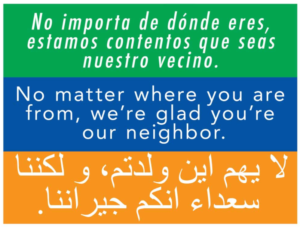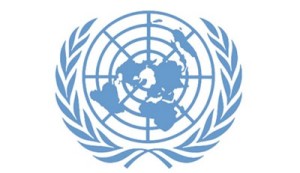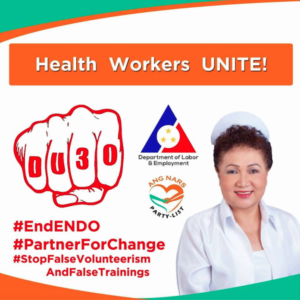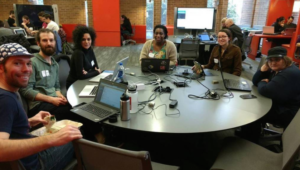Disclaimer: this is not legal advice. I am not a lawyer. Any activity incurs risk. The author (me) assumes no responsibility for the use of information contained within this document.
May 2022 update: This is from an Afghan refugee I know in Australia:
Hello Jayne, I am so happy as the past Saturday i was able to do a one day volunteering job for the election day. It was a nice experience and i also took my eldest niece with me. She was so happy and told me that she would love to do volunteering in the future as well. I couldn’t wait and wanted to write you.
Original blog:
 Volunteer engagement is so much more than getting work done: it allows the community to see, first hand, what a nonprofit or other mission-based organization or program does, it allows a nonprofit or government program to cultivate relationships with certain demographic groups it might not otherwise, it creates stronger ties between a program and the community, and it can contribute to community cohesion, bringing together different segments of a population in a setting that can help build relationships and understanding.
Volunteer engagement is so much more than getting work done: it allows the community to see, first hand, what a nonprofit or other mission-based organization or program does, it allows a nonprofit or government program to cultivate relationships with certain demographic groups it might not otherwise, it creates stronger ties between a program and the community, and it can contribute to community cohesion, bringing together different segments of a population in a setting that can help build relationships and understanding.
All of these reasons for engaging volunteers are why it’s a good idea for mission-based programs to explore ways to welcome residents who are immigrants as volunteers. You are missing out on a tremendous amount of talent and energy if you are excluding immigrants as volunteers, and such exclusion contributes to community divisions.
Immigrants might be long-term residents of a neighborhood or community, but they can feel on the margins of such, for a range of reasons. They often have children in the local school system, work in a local job, attend a local community of faith, pay taxes, are affected by the same social, political, economic and environmental issues as other residents, etc., but may not feel included or welcomed to volunteer in their communities. Just like other people, immigrants care about children, the environment, people with disabilities, safety, local prosperity, animals and more in the places where they live.
There is no law preventing an immigrant from volunteering with nonprofit organizations in the USA, and most local government agencies, including public schools, also aren’t prohibited by law from involving immigrants as volunteers. This is in contrast to federal agencies, where there are some prohibitions (more on that later).
Here are ways to make your organization more welcoming for immigrants living in your community. Note that this is USA-specific information, and, again, note that rules regarding volunteer screening and engagement can be different for nonprofit organizations versus federal agencies:
If your nonprofit organization or local government agency currently says on its web site or in other material that a volunteer must be a citizen of the USA, reconsider that requirement. Such a requirement excludes green card holders – legal permanent residents – among others. Why would you exclude green card holders from volunteering as, say, volunteer firefighters or tutors in the local school system? Think carefully about why you have certain citizenship or legal residency requirements for volunteers, and unless you can come up with a specific reason for this requirement – for instance, some roles require a multi-state criminal background check because the volunteer would be working with children or other vulnerable populations – consider changing that protocol.
According to this web site from the USA National Park Service, citizens of countries other than the USA are eligible to participate in federally-sponsored volunteer programs only if they are accepted for one of the Exchange Visitor Program categories through a designated sponsoring organization that is certified by the U.S. Department of State. Individuals who are not USA citizens but reside in here may volunteer with a federal agency if they are a lawful permanent residents (green card holders); or if they are non-immigrant aliens with F-1 or J-1 visa status, who are bona fide students residing in the USA to pursue a course of study at a recognized, approved institution of education. Again, these are rules for volunteering with federal agencies, NOT with local government agencies, like public schools, nor with nonprofit organizations.
Also, note that the US military allows certain undocumented immigrants to serve.
If your organization requires volunteers to provide documentation to prove their identity, then state on your web site and in orientations for new volunteers that, at least for some volunteering roles, this could be a driver’s license or passport from any country, not just the USA. You could also ask for a consular identification card, which is issued by some governments to their citizens who are living in foreign countries (they are not certifications of legal residence within foreign countries). If you require proof of a local residence and a local mailing address, ask for a utility bill or housing lease. You can also ask for references from employers or officials of the person’s community of faith. It is possible to do criminal background checks on immigrants without social security numbers: even with just a person’s name and date of birth, many county and state criminal databases will indicate if any applicant has had any prior arrests or convictions. Make it clear to applicants if you are going to do this with their information (submit it to local law enforcement). You may want to check with the law enforcement agency that does your criminal background checks to ask them about their policy for working with U.S. Immigration and Customs Enforcement (ICE); many law enforcement agencies will not turn over any information to ICE without a court order, and if they have this stated policy (these days, it will be on their web site if they have this policy), you can let your volunteer applicants know.
Some organizations, such as public schools, require that volunteers provide social security numbers so that a particular type of criminal background check can be conducted, and in many cases, that requirement cannot change because it is required by a state law. But what can change is volunteer roles that are offered. Could you create volunteer roles that don’t require a criminal background check, because a volunteer is never alone with children or other vulnerable populations? For instance, nonprofits that do beach cleanups don’t do criminal background checks of the participating volunteers, nor ask for their social security numbers. Habitat for Humanity does not ask for this information for volunteers participating in house building. Nonprofit theaters and performing arts centers rarely do criminal background checks on volunteer ushers, who show people to their seats before a performance. Could you create such volunteering tasks that don’t require criminal background checks, because the volunteers are always in groups, never one-on-one with a volunteer, client, member of the public, etc.? For instance, in a public school, you could set the rule that only volunteers with a social security number and valid state ID would be allowed unsupervised access to children, for such activities as tutoring and to chaperone field trips, but allow other volunteers without social security numbers (but are vetted in other ways) to create murals or help at in-classroom parties.
(and remember that keeping children and other vulnerable populations safe requires MUCH more than a criminal background check – see this resource for more information)
No matter what form of identification you ask for, state clearly on your web site and in your orientation for new volunteers that you will not sell, trade or give this information to any other agency, that only your human resources staff and head of the organization will have access to this information (no other staff should be able to go through volunteer – or paid staff – files), and that you will not give these records to any law enforcement agency without a court order. Also clearly state that you will not voluntarily release personally identifiable data or information to any law enforcement agency, and will not release information that may be used to ascertain an individual’s religion, ethnicity or race, unless for a law enforcement purpose unrelated to the enforcement of a civil immigration law and only with a court order – or with the volunteer’s permission. Explain your photo release policy carefully, and give all volunteers the right to ask that a photo of themselves be removed from your web site.
Note in your communications with new volunteer applicants that no staff member at your organization shall grant ICE or border patrol agents access to your facilities for investigative interviews or other investigative purposes without a court order. You may want to put this statement on your web site as well.
Except when compelled by a law or a specific written policy, there’s no reason for an organization to inquire into the immigration or citizenship status of anyone. Talk to all employees, consultants and volunteers about what they should and should not ask of each other – not just immigration status, but also things like income, property holdings, health conditions (“Are you disabled?!”), etc.
Consider posting a sign such as the one below at your entrance and in your lobby, to make it clear you welcome all people to inquire about volunteering, about client services, etc.:

A group of volunteers supporting the Charlotte-Mecklenburg Schools in North Carolina was assigned to find a way undocumented immigrant parents could volunteer in their schools. This article is about their struggle and this article is about what they finally ended up doing.
My only other caution regarding involving immigrants as volunteers would be involving such in unpaid internships. An unpaid internship is volunteering, just as virtual volunteering, skilled volunteering, pro bono services, microvolunteering, episodic volunteering, group volunteering and all the other forms of donated, unpaid service are. But internships are full-time experiences and meant specifically to give someone on-the-job training for eventual paid work. The US Department of Labor is concerned both with the protection of jobs for United States citizens, and views internships as jobs, even those at nonprofits.
On a different note: A federal judge granted class-action status to a lawsuit filed in 2014 claiming thousands of detained immigrants were forced to work for $1 a day or nothing at all while in custody of ICE at Denver Contract Detention Facility. The forced labor could be considered a violation of federal anti-slavery laws, according to the Washington Post. Jaqueline Stevens, head of Northwestern University’s Deportation Research Clinic, said the Denver facility violated the federal standards of volunteer work programs in which many detainees are required to participate. Stevens’ research prompted the original lawsuit. “Just slapping the word ‘volunteer’ in front of ‘work program’ doesn’t exempt the prison firm from paying legally mandated wages any more than McDonald’s can use ‘volunteer’ senior citizens and pay them Big Macs,” Stevens told the Washington Post.
October 14, 2017 addition: If your nonprofit organization says a prayer before meetings or events, says the Pledge of Allegiance to the USA flag, has trainings where recruits run behind a USA flag and chant, etc., and you want to be a more welcoming organization to both immigrants and people of a variety of religious and non-religious practices and political beliefs, you should reconsider those activities as official parts of your organization’s activities. If you are a religiously-affiliated organization, and state this as a part of your mission, then religious practices as a part of your organization’s activities are to be expected. If your organization is focused on patriotism or loyalty to the USA, and state this as a part of your mission, then nationalistic practices as a part of your organization’s activities are to be expected (remember:the US military allows certain undocumented immigrants to serve, and those service men and women most certainly run behind a USA flag – and know that expectation going in!). But if you don’t have such statements in your mission statement, and if you want to be a welcoming organization to a diversity of people, you need to rethink these religious and nationalistic activities – they might feel affirming to you and might give you pride regarding your own religion, beliefs or country affiliation, but they might feel exclusionary, uncomfortable – even xenophobia – to others, such as people who are from other countries and, while legal residents of the USA, aren’t citizens, people who are of a religion that disallows such ceremonial activities, people who are of a religion different than that from which the prayer comes, people who are not religious, people who have had negative experiences with nationalistic agendas, and on and on. See Making certain volunteers feel unwelcomed because of your language and Do you welcome people with your language? for more on the subject of being welcoming organization.
Here are more resources from other organizations regarding immigrants as volunteers:
- National Volunteer Week: How Much Do Immigrants Volunteer? “Volunteering has long been shown to bring stability to neighborhoods and increase the level of cohesion and bonding among friends and neighbors. In communities with large immigrant populations, these are particularly desirable attributes, and places like New York City have already increased efforts to incorporate immigrants into social and political volunteerism… Our analysis produced some interesting takeaways that can help advocates and community leaders inspire more immigrants to join organizations—and, in turn, get more out of their participation.” From the New American Economy Action Fund
- Increasing Knowledge Related to the Experiences of Undocumented Immigrants in Public Schools. This article describes the experiences of school personnel working with undocumented immigrants in public schools and the opinions and attitudes of school personnel. It was published in Educational Leadership and Administration: Teaching and Program Development, Volume 24, January 2013, ISSN 1532-0723 © 2013 California Association of Professors of Educational Administration
- Parental Involvement in Schools. “Students with parents who are involved in their school tend to have fewer behavioral problems and better academic performance, and are more likely to complete high school than students whose parents are not involved in their school. Positive effects of parental involvement have been demonstrated at both the elementary and secondary levels across several studies, with the largest effects often occurring at the elementary level. A recent meta-analysis showed that parental involvement in school life was more strongly associated with high academic performance for middle schoolers than helping with homework. Involvement allows parents to monitor school and classroom activities, and to coordinate their efforts with teachers to encourage acceptable classroom behavior and ensure that the child completes schoolwork. Teachers of students with highly involved parents tend to give greater attention to those students, and they are more likely to identify at earlier stages problems that might inhibit student learning. Parental involvement in school, and positive parent-teacher interactions, have also been found to positively affect teachers’ self-perception and job satisfaction.”
October 18, 2017 update: The Daily Mail in the UK has an article about volunteering by asylum seekers in Italy and how the practice has been both praised and panned. Some see it as an opportunity for asylum seekers to do something positive and break with boredom, some see it as exploitation of asylum seekers, and some see it as stealing paid jobs, because the asylum seekers are doing for free what people in Italy are usually paid for. Susan Ellis and Rob Jackson do a great job of exploring the issue in depth. My own thoughts: Just picking up trash together – but never interacting with local people – doesn’t help much in terms of integration of refugees. Couldn’t there be a volunteering action that brings together both local people and refugees? I am sympathetic to labor unions – there are politicians who will look for a way for volunteers to do what paid people are doing, so that they can cut funding – it does happen. But surely there are plenty of things refugees-as-volunteers can do that paid people aren’t doing? I can look around my own community right now and see all sorts of things refugees could so as volunteers that no one is being paid to do and that would most certainly help them integrate right here in this small Oregon town – I would imagine Italy could do the same.
Update December 1, 2017: Young refugees keen to volunteer in Australia
Here are more of my resources on related topics:
- Recruiting Local Volunteers To Increase Diversity Among the Ranks
- Screening Volunteers for Attitude
- Volunteer Background Checks: Giving Back Without Giving Privacy
- Creating a Speak-up Culture in the Workplace
- Keeping volunteers safe – & keeping everyone safe with volunteers
- Why don’t they tell? Would they at your org?
- Safety of volunteers contributes to a shelter closing
- Safety in virtual volunteering
- Screening applicants by reviewing their online activities
- My consulting services

If you have benefited from this blog or other parts of my web site or my YouTube videos and would like to support the time that went into researching information, developing material, preparing articles, updating pages, etc. (I receive no funding for this work), here is how you can help.





